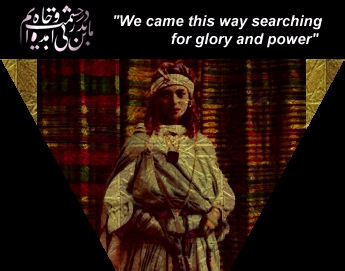
Critical Chain. . . (a forward for the game of Quirkat)

At times of distress, strengthen your heart,
Even if you stand at death’s door.
The lamp has light before it is extinguished,
Wounded lions still know how to roar.
(Samuel ibn Naghrila ca 1013 AD.)
My son emerged from the doorway, tears welling in his eyes, pain showing on his face. He was scared. So was I. But the words of Samuel Ibn Naghrila, almost a thousand years old, whispered in me, and I put on a brave face, and with my wife, hugged him and offered encouragement and support. A few minutes before my daughter-in-law’s mother had emerged from the newborn section white-faced and crying and had hustled Barb away to some far hallway, out of earshot of the rest of the family, to confer in hushed and hurried tones. Now I may not be the swiftest guy around, but I knew that that spelled trouble, and at that instant that familiar and unwelcome feeling of helplessness, that too often life visits upon me, settled in for an extended stay.
Little Haylie was having trouble breathing.
The doctors there were ill-equipped and lacked the skill to deal with the situation and the baby was hurriedly transported to Primary Children’s Hospital, some 20 miles distant. We followed closely behind -- shaken, and deeply worried.
Primary Children’s Hospital proved both at once a terrible and a wonderful place. ‘Terrible’ in that so many sick children pass through its doors; ‘wonderful’ in that so much talent and technology is amassed within to help them in their fight back to health. Haylie was only one of many newborns struggling for life there, each cocooned in a technological life-pod of winding tubes and blinking lights. Nurses hurried here and there, faint beeps and glowing lines traced even fainter heartbeats, papers rustled in semi-darkness, phosphor-lit screens spewed their eerie glow . . . and through all of this, small, brave couplets of family visited their tiniest loved ones, standing for only a few moments beside each station . . . then quietly slipping away to give room for others.
After agonizing hours, in which Haylie had been poked, and prodded, and X-rayed, and MRI’ed, and scanned a seemingly thousand ways, three doctors huddled with my son, and three generations of supporting family, in the waiting room. They had seen Haylie’s condition before, they explained -- once or twice every year -- and they knew what to do. Soon miniature instruments, their pathways lit by equally miniature fiber-optics, became the extensions of the skilled surgeon’s hands and fingers and snaked into Haylie’s throat and nasal passageways to effect a delicate miracle.
In all, I spent two days at the hospital, waiting, wondering, pondering, worrying, praying, and then waiting again, and between all that, and eating out of a vending machine, I had too much time to think -- way too much. My mind began to wander. I realized that even twenty years ago, Haylie’s operation would not have been so easy. Forty years ago her condition would have been critical and very invasive procedures would have been her only hope. Sixty years ago, I don’t know that she would have survived at all. Eighty years ago -- forget it! So who bought us -- my wife, my son, my family, and ultimately my granddaughter -- those critical 20 or 30 years? Upon whose shoulders had those wonderful surgeons stood? Who had been our benefactors? Such miracles do not occur in chaos -- no butterfly fluttered its wings in ancient China and thus set in motion the salvation of little Haylie ;-) No, history is a fabric of interwoven threads, connections if you will, one leading to the next, and the next, and so forth. And I began, with my mind’s eye, to trace the critical chain backwards through the tapestry of centuries . . . and my time travels led me not to London, or Paris, or Rome, but to Cordoba; to Muslim Spain; to one Abu Al-Qasim Al-Zahravi, known in the west as ‘Albucasis’ -- the father of modern surgery. He was born in 936 AD. and died in 1013 AD. after a brilliant career as the court physician of King Al-Hakam-II. He was the most famous physician of his time and for many centuries afterwards. His 30 volume medical encyclopedia was for 500 years, even in the West, the standard text on surgery. He invented many surgical instruments -- over 200 -- and his skill was so legendary that throngs of Europeans braved a difficult journey over dangerous paths to Cordoba to seek his treatment and expert care.
And why was Albucasis in Cordoba?
Because in 711 AD. Tariq Abu Zhara’s Arab and Berber army, for the glory of Allah (and "ravishingly beautiful Greek maidens, their graceful forms draped in sumptuous gowns on which gleamed pearls, coral, and purest gold") had breached the strait and conquered Spain and though their physical advance was ultimately stopped by geography, Charles Martel, political intrigue, logistics, El Cid, etc., their knowledge, Albucasis’ knowledge, was not, and it cleaved the darkness and the chaos, and it breached the oceans and the mountains, and the many centuries. No, there are no minarets in Oxford, or Salt Lake City for that matter, but their light shines there just the same, and in the conquering of Al-Andalus, came the salvation of little Haylie, more precious than pearls, or coral, or purest gold . . . at least to me . . .
"...They ask thee how much they are to spend (in charity);
say: "What is beyond your needs."
Thus doth Allah make clear to you His Signs: in order that ye may consider."
The Holy Qur'an 2:219